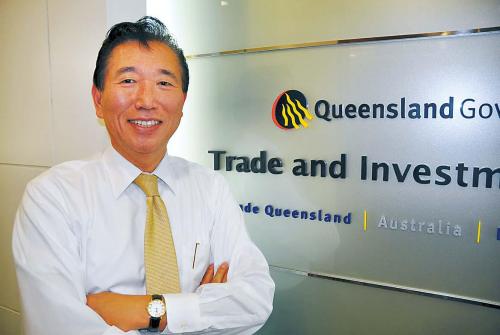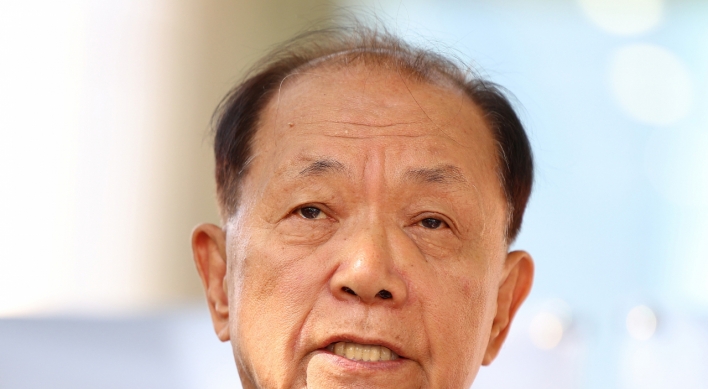Queensland hopes to expand business ties with Korea
By Korea HeraldPublished : Feb. 6, 2012 - 17:15
Investment chief expects closer relations in energy, food and marine resort sectors
Trade volume between Korea and Australia has soared to more than $27 billion since the two countries established diplomatic relations five decades ago. Korea now is Australia’s third-largest trading partner.
At the forefront of that relationship is Queensland Government Trade and Investment Office, which is responsible for attracting business between Korea and one of Australia’s most important trading states.
Korea’s need to secure a stable energy supply is an important part of this relationship.
“Coal from Queensland has contributed significantly to Korea’s power generation and has fueled such companies as POSCO, KEPCO, STX and Hyundai Steel,” Commissioner Woo Sang-min told The Korea Herald.
Trade volume between Korea and Australia has soared to more than $27 billion since the two countries established diplomatic relations five decades ago. Korea now is Australia’s third-largest trading partner.
At the forefront of that relationship is Queensland Government Trade and Investment Office, which is responsible for attracting business between Korea and one of Australia’s most important trading states.
Korea’s need to secure a stable energy supply is an important part of this relationship.
“Coal from Queensland has contributed significantly to Korea’s power generation and has fueled such companies as POSCO, KEPCO, STX and Hyundai Steel,” Commissioner Woo Sang-min told The Korea Herald.

Korea Zinc advanced into Queensland about a decade ago and built zinc smelting facilities. More recently KOGAS invested $2.6 billion into one of Queensland’s coal seam gas LNG projects.
But that is in Queensland. In Korea, Queensland companies and local traders have been supplying a “clean and stable food source for Korea by providing wheat, soybean, raw sugar, beef, fruits and fishery products.”
Among imported products from Queensland, beef is one of the more popular foods especially after the North American mad cow outbreak of 2003 when Korea and many other Asian countries halted all bovine imports from Canada and the United States.
“Australian beef is recognized as a clean and safe product among Korean customers,” he said.
Queensland beef makes up 75 percent of the imported bovine products from Australia.
Australia currently enjoys a share of between 40 and 60 percent of the imported beef market in Korea, but Woo is expecting that to change once the Korea-United States free trade agreement comes into force and Canadian beef imports resume.
Woo is also looking to introduce the marine and leisure sector in Korea, one still in its infancy here.
“The marine, leisure and yacht industry are traditionally strong sectors for Queensland,” he said.” They are becoming more active in Korea through a (memorandum of understanding) established with North Gyeongsang, North Jeolla and Gyeonggi provincial governments.”
He added that those sectors are not doing well in Japan but are doing quite well in Korea due to the local government’s recent policy.
“This is a future niche market for Queensland,” he said. “The Seoul Renaissance Project has already started purchasing marina products from Queensland.”
One of Woo’s staple economic missions is to Queensland for The Magic Millions Sales auction.
The state’s racehorse auction house has provided Korean horse owners with pedigree Queensland horses which have successfully proven themselves against Korean, American and Irish thoroughbreds on the racecourses in Seoul, Busan and Jeju.
Woo is hoping that the Korean government will remove the cap governing the purchase of foreign horses so that local race horse owners could be more competitive during the auction process against their peers from Hong Kong and Malaysia.
“Hong Kong and Malaysia race owners are looking for better horses and find it easy to compete against Korean horse owners during the auction; they just wait for the price to go above $20,000,” he said.
Currently government regulations state that the purchase of foreign horses must not exceed $20,000.
“Now that the government fully understands this impediment and is looking to change the regulations,” Woo said.
The Queensland office has also been supporting many design and construction projects in Korea by introducing Queensland companies to local agencies.
Populous, a world leading design company, was selected to build the 2014 Incheon Asian Games main stadium through the support from the Korea office, he said.
Korean companies will also find opportunities for public infrastructure, construction and power generation upgrades in Queensland. So far, Lotte Construction, Hyundai Amco and Mirae H&D already have a presence in Queensland.
By Yoav Cerralbo (yoav@heraldcorp.com)
-
Articles by Korea Herald







![[KH Explains] No more 'Michael' at Kakao Games](http://res.heraldm.com/phpwas/restmb_idxmake.php?idx=644&simg=/content/image/2024/04/28/20240428050183_0.jpg&u=20240428180321)











![[Herald Interview] Mistakes turn into blessings in street performance, director says](http://res.heraldm.com/phpwas/restmb_idxmake.php?idx=652&simg=/content/image/2024/04/28/20240428050150_0.jpg&u=20240428174656)
